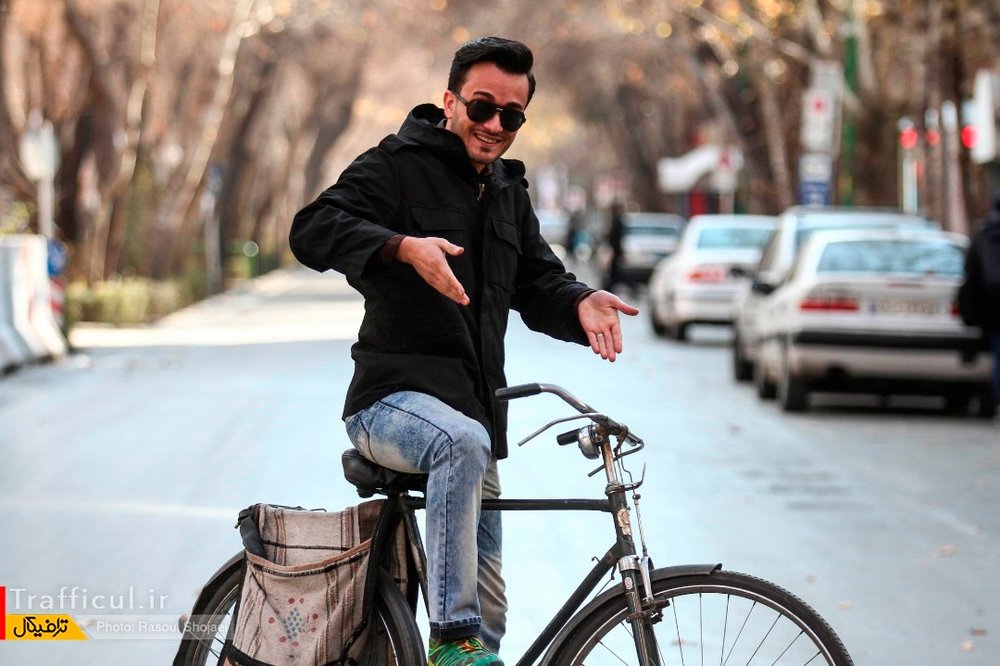‘Automotive cities, barriers to cycling in Iran’

TEHRAN — Automotive cities, that facilitate and encourage the movement of people via private transportation is the main obstacle to promote cycling in Iran, the distinguished Mohammad Darvish has said.
Darvish, the former head of the public participation office at the Department of Environment (DOE) made the remarks on the occasion of the 1st World Bicycle Day, June 3.
The United Nations has declared June 3rd as International World Bicycle Day, by adopting a resolution on April 12, 2018, during the 72nd Regular Session of the UN General Assembly, in New York City.
The declaration invites all Member States and relevant stakeholders to improve road safety and integrate it into sustainable mobility and transport infrastructure planning. The declaration encourages Member States to devote particular attention to the bicycle in cross-cutting development strategies and to include the bicycle in international, regional, national and subnational development policies and programs. H.E. Ambassador, Aksoltan Ataeva, Permanent Representative of Turkmenistan to the United Nations, introduced the draft resolution, co-sponsored by 56 countries, to the General Assembly for the vote.
The resolution was adopted by a consensus of 193 member states, including Iran.
The United Nations adopted the World Bike Day, while the car-free Tuesdays campaign, a public spear-headed campaign launched to encourage using bicycles instead of private cars, has been set up in Iran some 2 years ago, Darvish stated, adding that so in this regard, Iran is the pioneer and this reflects validity of the campaign.
The campaign which aimed to decrease the number of private cars in the cities hence mitigate air pollution, was kicked off in 2016 by Mohammad Bakhtiari, majored in architecture and a member of a local NGO with 1,000 members known as “the guardians of the environment of Arak city”.
The major obstacle to car-free Tuesdays campaign, and promoting cycling was the inefficient infrastructure in the country, ISNA quoted Darvish as saying on Saturday.
The most important action UN urges Member States to take is to improve road safety and transport infrastructure planning to get more people on bikes, he remarked, adding the UN Secretary General is responsible for providing an annual report on the countries improvement on this manner.
The truth, however, is that urban transportation systems in most developing cities, such as Tehran, are far from ideal, lacking bike lanes to ensure safety improvements and higher ridership numbers, as well as efficient, low emission public transport are some of the shortcomings in the Iranian capital, he mentioned.
Accessible and affordable public transport service as well as safe infrastructure for non-motorized transport such as cycling and walking are lacking in most developing countries, he regretted.
Darvish went on to say that the most important problem which led to car-free Tuesdays campaign failure was municipality officials who are not aware of the appropriate infrastructure of the cities, and they are designing the cities as automobile-based, which encourage people to use private transport rather than public.
If we had municipality and government officials who use public transport or biking, people would have followed, as well, Darvishi mentioned, adding, people have never seen an official riding a bike.
He further mentioned that the draft resolution of World Bicycle Day was introduced by Turkmenistan which is not struggling with air pollution or traffic congestion in comparison to Iran.
He finally urged citizens to ride bikes on World Bicycle Day and give this message to the authorities that “we want to ride bikes [to develop facilities in the cities including bike lanes].”
“We hope that the World Bicycle Day become a great social movement in the country and that Iranian won’t consume 8 billion liters of gasoline per year and not to be amongst the world top producers of greenhouse gas emissions,” he concluded.
FB/MQ/MG
Leave a Comment